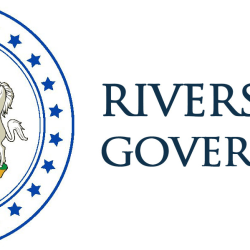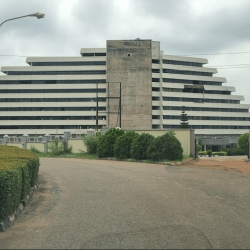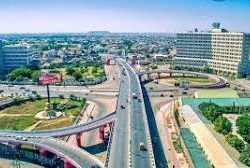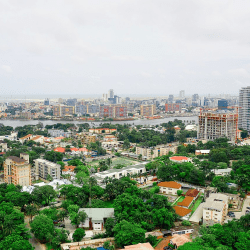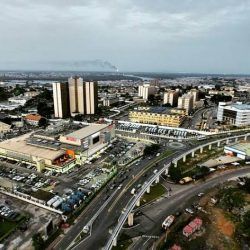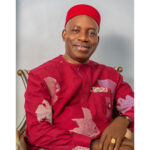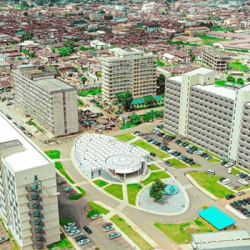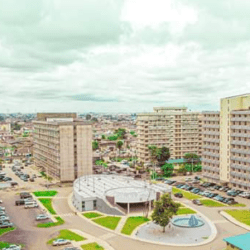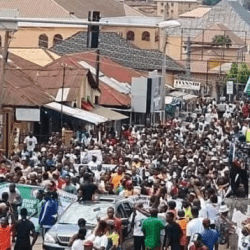The Bayelsa State Executive Council is the highest Government body in the State and is headed by the Executive Governor of the State.
Below are members of the Bayelsa State Executive Council, 2022


SENATOR DOUYE DIRI
Executive Governor

SEN. LAWRENCE EWHRUDJAKPO
Deputy Governor

DR. FRIDAY BENSON
Secretary to State Government

BIOBELE CHARLES-ONYEMA
Head of Service

CHIEF BENSON AGADAGA
Chief of Staff

DR. PETER P. AKPE
Deputy Chief of Staff

TESUFA ALEX DUMBO
Deputy Chief of Staff

MR. IRORO KOMONIBO
Principal Secretary
BIRIYAI DAMBO (SAN)
Justice

HON. AYIBAINA DUBA
Information & Orientation
HON. MAXWELL EBIBAI
Finance

SURV. MOSES TEIBOWEI
Works & Infrastructure
HON. GENTLE EMELAH
Education

HON. EBITEI TONYON
Power

HON. FAITH OPUENE
Women Affairs & Social Development

HON. STANLEY BRABOKE
Labour, Employment & Productivity
HON. OTOKITO FEDERAL
Trade, Industry & Investment

CHIEF DAVID ALAGOA
Agriculture & Natural Resources
EBIDE ALAMIEYESEIGHA
Budget & Economic planning
CHIEF THOMPSON AMULE
Local Government & Chieftaincy Administration
MR. DANIEL B. IGALI
Youths & Sports Development
HON. ISELEMA GBARANBIRI
Enviroment

CHIEF EKISAH SINKUMO
Special Projects

DR. PABARA N. IGWELE
Health
HON. ESAU ANDREW
Lands & Housing

HON. GRACE IKIOTENNE
Transport

HON. ITI ORUGBANI
Culture & Tourism Development
HON. EBIERI JONES
Mineral Resources

DR. PROMISE EKIO
Communications, Science & Technology
HON. REX FLINT GEORGE
Special Duties – Central

HON. PREYE BRODERICK
Special Duties – East

CHIEF ERASMUS PATRICK
Ijaw National Affairs

HON. KEME WARIEBI
Water Resources

HON. OBOSI CHURSON
Special Duties – West
Reference: bayelsastate.gov.ng/executive-council/
Bayelsa
Bayelsa is a state in Nigeria. It is located in the southern part of the country.


Created on October 1st, 1996 from the old Rivers State, it’s bounded to the east by Rivers State and west by Delta State, the beautiful waters of the Atlantic Ocean dominates its southern borders.



It has the longest coastline in the West African sub-region making the State a tourists destination.

Bayelsa State consists of 8 Local Government Areas:
Brass
Ekeremor
Kolokuma/Opokuma
Nembe
Ogbia
Sagbama
Southern Ijaw
Yenagoa


The name Bayelsa is derived from a combination of acronyms of three Local Government Areas within its confines: Brass LGA (BALGA), Yenagoa LGA (YELGA), and Sagbama LGA (SALGA). The state is made up of 8 Local Government Areas; they are Ekeremor, Kolokuma Opokuma, Yenagoa, Nembe, Ogbia, Sagbama, Brass and Southern Ijaw.
The beautiful city of Yenagoa serves as the Capital City which plays host to most of the Government and private institutions.


The four main languages spoken are Izon, Nembe, Ogbia and Epie-Atissa. Like the rest of Nigeria, English is the official language.

Bayelsa State has one of the largest crude oil and natural gas deposits in Nigeria. Bayelsa is often described as the cradle of Ijaw culture and tradition because of its rich culture and tradition that dates back to so many centuries.
Fishing is the major occupation of Bayelsa people because of the abundant creeks, lagoons, rivers and swamps within which commercial fishing is practiced. Over 200 species of fish can be found in the waters within and around the state. Fish oil extraction is a common economic activity throughout all the LGAs of the state, and the coastal areas abound in sea foods such as fish, oysters, crabs, lobsters, periwinkle et cetera. There are also sea animals such as Hippopotamus, manatee, crocodile etc. in the seas, rivers and streams that crisscross the state.
Food crops grown in the state include yam, cocoyam, banana, pineapple and plantain. Cash crops grown in the state include coconut, pears, oil palm and raffia palm. The potentialities for the development of these crops to feed local industries are very good. Technologies are being developed to reclaim land from mangrove swamps in order to cultivate food, especially lowland rice and the cash crops identified above on a large, commercial scale.
Location: Bayelsa is geographically located approximately within Latitude 4°15 North at the Southern part & 5°23 North at the Northern limit and Longitude 5°22 East at the Western part & 6°45 East at the actual Eastern limit. It is bordered by Delta State to the West, Rivers State to the East, the Atlantic Ocean to the South and both Rivers and Delta States to the North.
Geology: Domiciled within the lower delta plain believed to have been formed during the Holocene of the quaternary period by the accumulation of sedimentary deposits. The major geological characteristic of the state is sedimentary alluvium.
Soils: The major soil types in the state are young and shallow,(inceptisol Aquepts) and acid sulphate soils (Sulphaquepts). There are variations in the soils, some soil types occupy extensive areas whereas others are of limited extent. However, based on physio graphic differences, several soil units could be identified in the state.
Climate and Vegetation: Rainfall in the State varies in quantity from one area to another. The state experiences equatorial type of climate in the southern the most part and tropical rain towards the northern parts. The average monthly temperature is in the range of 25°C to 31°C. The hottest months are December to April.
Minerals:
With the largest crude oil reserve in the Niger Delta of Nigeria, the state produces over 40% of the country’s on-shore crude oil and vast quantities of associated gas. It also has large deposits of clay.

